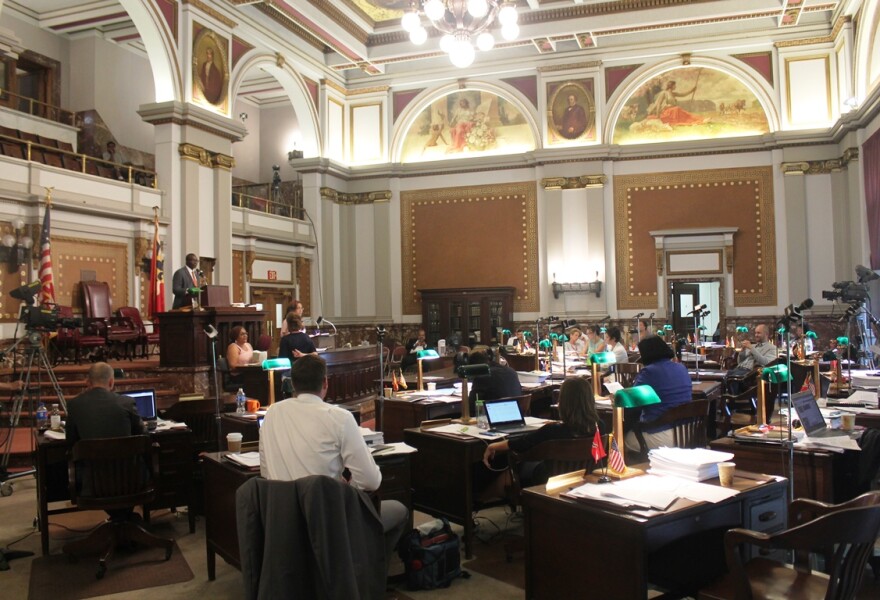The St. Louis Board of Aldermen Friday delayed a final vote on changes to the city’s residency requirement for workers and the number of aldermen.
Supporters of reversing a 2012 public vote that cut the number of wards from 28 to 14, and of eliminating the residency requirement for most city employees, did not have the votes to send the measures to Mayor Lyda Krewson. She had already pledged to veto the ward reduction reversal.
Aldermen last week narrowly gave first-round approval to the bills, which would also require approval by 60 percent of St. Louis voters. But three aldermen who had voted yes were not at Friday’s meeting, forcing the delay.
Supporters of reversing ward reduction may be able to pick up an additional two or three votes by agreeing to hold the election in November rather than next April, but would still fall short of overriding Krewson’s veto.
Aldermen on Friday did adopt a resolution calling on the board’s Legislative Committee to form an advisory committee to “facilitate a transition that results in more just and efficient government.”
The resolution is not about the redistricting process, or whether the ward reduction should be reversed, said Alderwoman Heather Navarro, D-28th Ward, its sponsor.
“This is about, if we move forward with that, we have a lot of due diligence on our own part to do, and this is about getting the ball rolling on having those conversations, in terms of what other sorts of decisions and logistics do we need to consider to do that well,” Navarro said. “If we do move forward, we need to be able to listen to all the concerns from the people who oppose it, and make sure we incorporate those into our deliberations about how logistically we operate as 14 as opposed to 28.”
Navarro’s resolution does not spell out the exact membership of the committee, although it suggests “engaging representatives from Forward Through Ferguson, the Equity Indicators Project, the City Budget Division, and the Community Development Administration.” There is no deadline to establish the advisory committee, although the resolution does call for it to release a report after a year.
As it stands, the number of wards would be reduced after the 2020 census.
Follow Rachel on Twitter: @rlippmann





